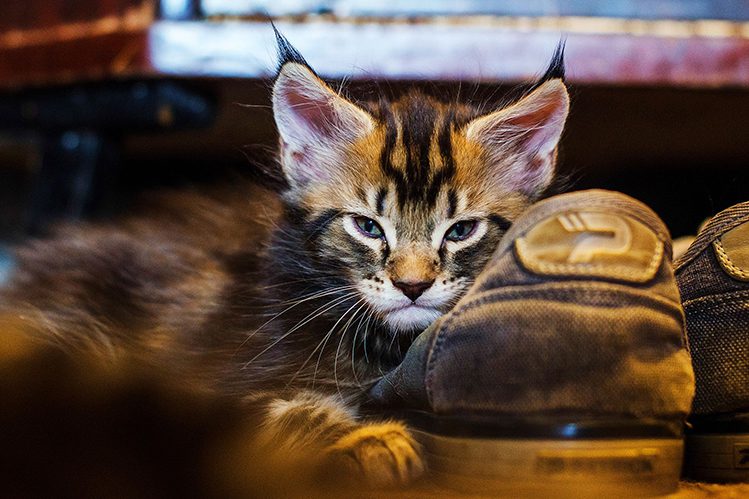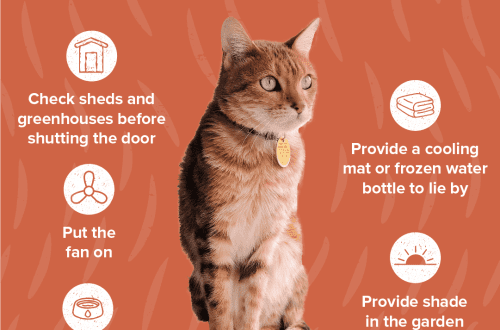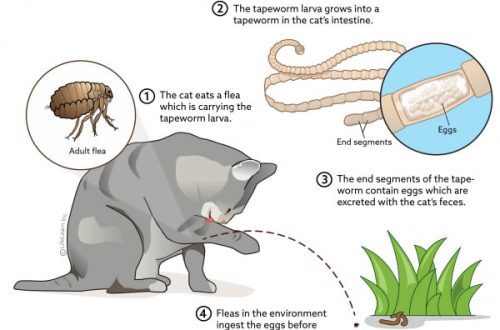
Deworming of kittens and cats
Did you know that most pets that do not receive regular deworming are infected with worms? And this despite the fact that many of them never leave the apartment. The same applies to kittens. It would seem, where can worms come from in babies, because they themselves have recently been born? Unfortunately, practice says otherwise: many kittens, including newborns, suffer from parasites. But how does infection occur, what symptoms indicate it, and how to remove worms from a kitten and an adult cat? About this in our article.
Contents
Where do kittens and cats get worms from?
If you have taken a kitten or an adult cat from your hands or taken it from the street, be prepared for the fact that your new family member is most likely already infected with worms.
Parasites can be transmitted to kittens from an infected mother – even before the birth of the kittens, while they are in the mother’s womb. Contact with other infected animals, the presence of ectoparasites (fleas, withers), poor living conditions, poor-quality feeding and eating raw foods (meat, fish) are some of the main ways of infection with helminths.
But even if the pets live in a favorable environment and do not come into contact with infected animals, there is always a risk that the eggs of the worms will be brought into the house on the shoes or clothes of family members. In this case, for the pet to become infected, it will be enough just to sniff things. Blood-sucking insects can also carry helminth eggs: fleas, mosquitoes.
For preventive purposes, helminth treatment is carried out 1 time per quarter. Discuss the treatment regimen with your veterinarian.
Contrary to the stereotype, a pet that does not visit the street can become infected with worms. Moreover, if you have never performed deworming, most likely it is already infested. Unfortunately, helminth infection is almost asymptomatic for quite a long time, but this is not a reason to underestimate the problem.
Helminths (they can live not only in the intestines, but also in the liver, brain, lungs and other organs) secrete waste products that slowly but surely destroy the organ of parasite localization. And also worsen the immune system, making the body vulnerable to all kinds of infections.
Do not forget that many helminths are dangerous for humans.

Worms in a kitten and an adult cat: symptoms
How to understand if a kitten or an adult cat has worms? At first, the invasion can be asymptomatic and appear only when it becomes very strong. Also, the symptoms are directly related to the health status of a particular pet and which organ is infected. There can be many nuances, but among the common signs indicating infection, the following can be distinguished:
Dull coat
Stool disorders (diarrhea and constipation)
Vomiting
Bloating
Weight loss
Weakness
Cough: noted with severe invasion, especially as a result of roundworm infections
Developmental delays and signs of anemia. Especially pronounced in kittens.
It is important to understand that both several symptoms and just one can appear.
With a strong infestation in the kitten’s feces or vomiting, adult parasites can be seen. Parasites gather in balls, causing constipation and intestinal obstruction.
Severe infestation poses a serious threat to the pet’s life. Especially when it comes to fragile kittens or cats whose health is undermined by chronic diseases or a crisis period: pregnancy, surgery, etc.

How to deworm a kitten and a cat
How to remove worms from a kitten or cat? Thanks to modern drugs, this is not difficult to do. The main thing is to choose a quality suitable medicine and strictly adhere to the instructions for use.
Do not give adult anthelmintics to kittens. It is dangerous for their health and life!
Before carrying out deworming, carefully read the instructions. Usually the drug for kittens is given once, but it can also be given in two stages, otherwise the treatment will be ineffective.
Be sure to make sure that the kitten swallows the pill. To do this, gently open the kitten’s mouth, place the tablet on the root of the tongue, and then tilt your head back a little and stroke the baby’s neck from top to bottom, stimulating the swallowing movement. But masking the medicine with food is not a good idea. A “deceived” kitten will most likely ignore not only the pill, but also his entire dinner.
You may find the article “” useful.
Do not forget that deworming kittens is a mandatory measure before vaccination. It must be carried out 10-14 days before vaccination.
Be careful, take care of your pets and let them never get sick!





